Israel announces daily ‘tactical pause’ in fighting in southern Gaza to let humanitarian aid flow into the war-torn region
Israel today announced it is imposing a daily “tactical pause” in fighting in the Gaza Strip to allow humanitarian aid to flow into the war-torn enclave.
The IDF said in a statement that the ‘The pause in military activity for humanitarian purposes will take place every day from 8am to 7pm until further notice along the road leading from Kerem Shalom Crossing to Salah al-Din Road and then north.”
Israel has long been criticized for its alleged refusal to allow aid into Gaza, leaving its residents starving and destitute.
In March, a UN-backed report claimed the number of people facing “catastrophic hunger” across the besieged enclave was 1.1 million, about half the population.
The assessment by the UN-backed initiative – a scale used by UN agencies, regional bodies and aid groups – came amid global pressure on Israel to allow more humanitarian aid into the 2,000-acre enclave 3 million people.
The IDF said it marked a daily lull in fighting
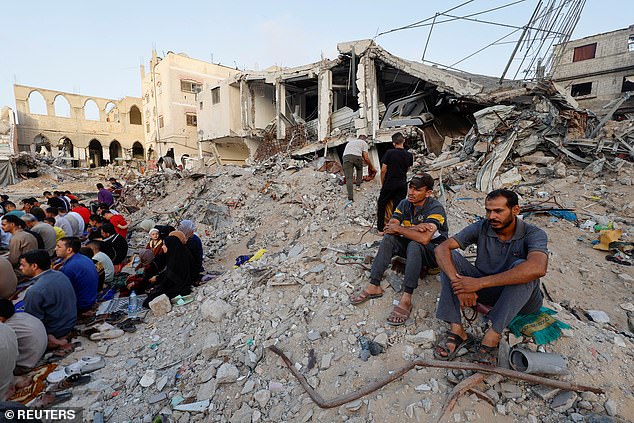
The IDF said in a statement that the “pause of military activities for humanitarian purposes will take place every day from 8 a.m. to 7 p.m.
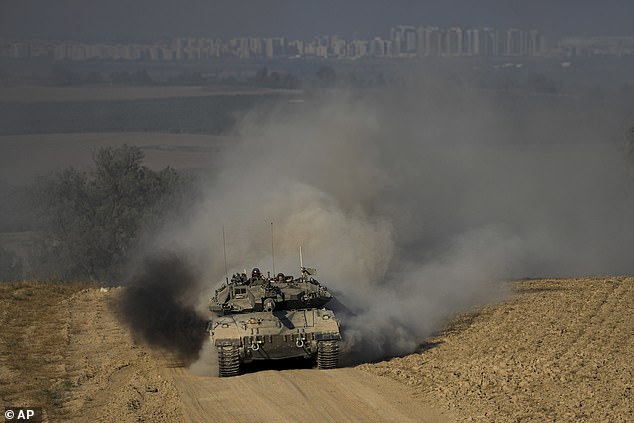
Israeli soldiers drive a tank near the Israel-Gaza border, in southern Israel, Wednesday, June 5, 2024
Sunday’s announcement was taken as part of efforts to “increase the amount of humanitarian aid entering the Gaza Strip” following talks with the UN and other organizations, the IDF said.
The World Health Organization has said that more than 8,000 children under the age of five have been treated for acute malnutrition in Gaza.
From May 6 to June 6, the UN received an average of 68 trucks of aid per day, according to figures from the UN humanitarian agency known as OCHA. That was a decrease from the 168 trucks per day in April and far below the 500 trucks per day that aid organizations say are needed.
World Food Program Deputy Director Carl Skau recently said that “with the lawlessness within the Gaza Strip… and active conflict” it has become “almost impossible to provide the level of aid that meets the growing demand on the ground.”
A spokesperson for COGAT, the Israeli agency responsible for affairs in the Gaza Strip, said it was the UN’s fault that their cargo was piling up on the Gaza side of Kerem Shalom.
He said the agencies have “fundamental logistical problems that they haven’t solved,” especially a lack of trucks.
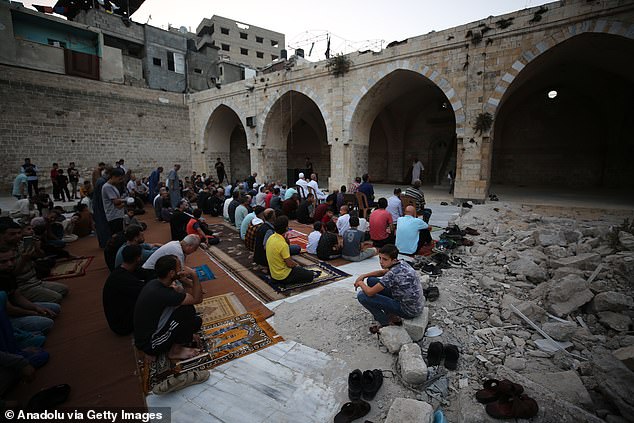
Palestinians in Gaza City perform Eid al-Adha prayer at the historic ‘Great Mosque of Omar’
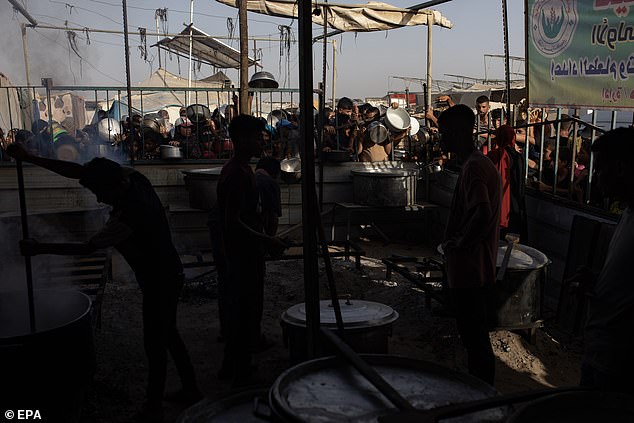
Displaced Palestinians wait in Khan Younis to collect food donated by a charity group
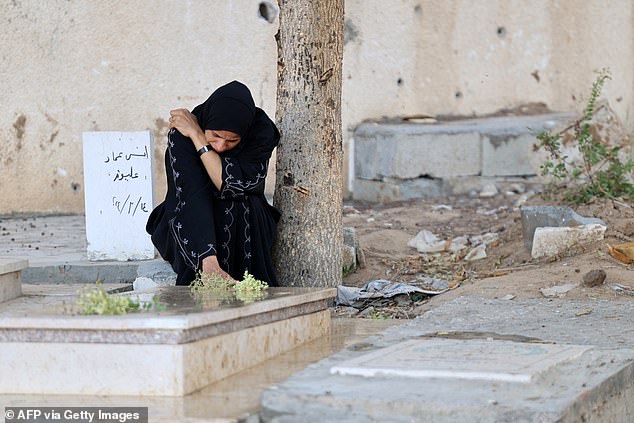
A Palestinian woman visits the grave of a relative killed in the ongoing conflict between Israel and Hamas
The UN denies such accusations. It says fighting between Israel and Hamas often makes it too dangerous for UN trucks in Gaza to travel to Kerem Shalom, which is right next to Israel’s border.
It also says the pace of deliveries has slowed because the Israeli military must authorize drivers to travel to the site, a system Israel says is designed for the drivers’ safety. Due to a lack of security, aid trucks have also in some cases been looted by crowds as they travel along Gaza’s roads.
The new scheme aims to reduce the need to coordinate deliveries by providing an uninterrupted 11-hour window each day for trucks to enter and exit the crossing.
It was not immediately clear whether the military would provide security to protect the emergency trucks as they traveled along the highway.
The pause along the southern route comes as Israel and Hamas consider the latest ceasefire proposal, a plan hammered out by President Joe Biden in the administration’s most concentrated diplomatic effort to halt the fighting and the release of the hostages. by the militant group.
Although Biden described the proposal as an Israeli one, Israel has not fully embraced it and Hamas has demanded changes that appear unacceptable to Israel.
Israel’s eight-month military offensive against the militant group Hamas, sparked by the group’s attack on October 7, has plunged Gaza into a humanitarian crisis, with the UN reporting widespread hunger and hundreds of thousands of people on the brink of famine to stand.
The international community has urged Israel to do more to ease the crisis, saying ongoing fighting, including in Rafah, has complicated aid efforts during the war.
